Rosalind Wiseman's Blog, page 46
December 21, 2010
In Memory of Jack
I really didn't see it coming. It cut right to my core; past the protective layer I have built around myself over the years.
For the last two weeks, I have tried to push it away. But it doesn't leave. It comes back, hovers, settling on my heart.
Last Monday, December 7th, I received an email from a mother telling me that her son Jack had killed himself. As I read her email my mind raced. Lots of kids email me. Who was this child? And then it hit me and brought me to my knees. Jack was a 17 year-old guy I emailed back and forth over the last year. Smart, funny, and insightful, he first contacted me to respectfully tell me that I was completely wrong about the basic premise of my work. Well not that it was exactly wrong, but absolutely unrealistic for anyone who wants to survive adolescence.
I love kids who argue with me. Especially smart ones who make excellent points. I want kids to take the huge risk of speaking out against humiliation. He thought that it was a futile effort. From his point of view it was better to be a good guy but keep it on the down low.
In Jack's own words:
Say what you will but every second guy in every high school acts like me. Maybe it doesn't excuse it but ill bet nobody really changes either. i genuinely like playing hockey and not just because of the girls so in part it is who I am. But in high school you cant both be a jock and do anything else if you are a guy. So if you liked 2 kinds of activities and one made you a victim and one made you cool can you honestly say you wouldn't pick the one that made you cool? I didn't think so. And it's way easier to do this and keep my gpa a secret. So maybe every guy is 1/2 douche bag and 1/2 good guy.
When I challenged him, he wrote back immediately:
Your right about being tired of the act but isn't that what life is? one big act. Aren't we all total phonies? And is that even such a bad thing? Like when my dad & mom divorced she was majorly sad but i knew i had to get her out of bed. So i acted like everything was a huge joke and sometimes she smiled & laughed. I could have acted the way I felt but who would it really help?
Ten days before he died he emailed me:
I don't normally send fan mail cause it is lame but you were awesome on anderson cooper. At my old school lots of guys would use homophobic slurs to pick on kids that weren't even gay. One of the PE teachers would even call us faggots and this one guy who probably was gay even if he wasn't out was picked on by this teacher as well as the other guys. Nobody did anything because they didn't want to be called a faggot either. I wish now I had of said something. I read your blog and I thought you totally tore them a new one and someone had to. Religious conservatives don't know what they are talking about. Or maybe they were the assholes in high school.
Let me tell you after a year of writing back and forth that praise was hard won. When I received it, I took it to heart. Not only what he said but the fact that he was willing to tell me that I had done well.
I emailed him back but didn't hear anything—until his mother wrote to me.
 Of course, as a mom of two boys myself, I can't help but look at them and die inside for Jack's mom. But to be honest, I think the reason I am so devastated about Jack's death is entirely selfish. I was looking forward to seeing what an outstanding man Jack would become—because he already was one.
Of course, as a mom of two boys myself, I can't help but look at them and die inside for Jack's mom. But to be honest, I think the reason I am so devastated about Jack's death is entirely selfish. I was looking forward to seeing what an outstanding man Jack would become—because he already was one.
Jack's death also makes me so angry. Because I think we all contribute to a culture where boys aren't allowed to be authentic; to unapologetically have rich emotional lives. Boys hurt when they see other people humiliated. They feel betrayed when the adults in their lives dehumanize others. That coach Jack described? He cut into every one of those boys' souls and spirits. And finally boys, harden their hearts when they don't think there's any reason to hope it will ever be different.
So to all the really cool guys out there who are hiding their real selves, the sacrifice is too high.
To all the parents and teachers who say: "Boys just aren't as complicated as girls. Maybe they get into fights with each other but when it's over they forget about it." Look deeper. Ask more. Be present. Be authentic. And most important, look past the "Don't worry about it, I'm fine," veneer and allow them to be their authentic selves.
Would Jack think I was full of it for saying all that stuff I just did? It's a distinct possibility. In fact, as I worry that I shouldn't post this around the holidays, I can imagine the conversation we would have had. I think he would have said just write what's important and true to you. So I am and hope that as a result of reading this you will reach out even more to the people you treasure.
Will I rededicate myself to my work in honor of Jack? Yes—although it feels like that's the only thing I can do. But I'd rather not have to. I really needed him around. We all did. And I was looking forward to a lot more debates.
December 16, 2010
Family Circle: Ask Rosalind, January 2011
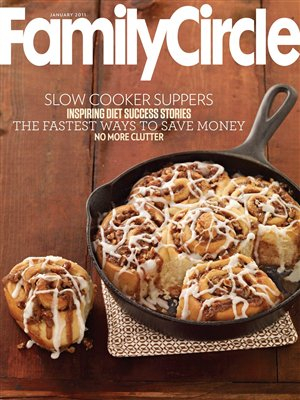 Q. I have a 12-year-old boy who has started telling little lies. For example, he won't say when a test is coming up, or who's with him when I call on his cell. How can I make him tell me the truth?
Q. I have a 12-year-old boy who has started telling little lies. For example, he won't say when a test is coming up, or who's with him when I call on his cell. How can I make him tell me the truth?
A. He isn't lying; he's withholding information. He probably wants to put space between the two of you, which is completely normal for his age. Admit to yourself that you may have been a little intrusive and you should give him more privacy. If he's keeping up with his schoolwork, back off there. He needs independence to learn academic responsibility. And while you want to give clear guidelines for how he uses his phone, and monitor his compliance, stop grilling him when you call. That said, freedom has limits. When he's struggling in a subject, he should ask for your help. And if you catch him in a lie about dangerous or unethical behavior, give appropriate consequences.
It All Got Messed Up
Rosalind Wiseman answers a question from Maya, who was pressured into making out by a friend who she was trying to help through a rough time. Now she is wondering how to restore the friendship to normal after he broke her boundaries. But is it worth keeping a friend when that person won't respect your wishes?
December 3, 2010
Kim Kardashian is Dead
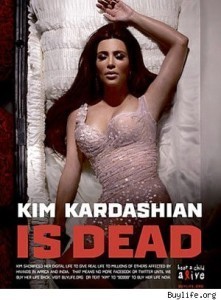 Not really, but along with other celebrities, she posed "dead" to raise awareness for World AIDS Day and the charity organization, Keep A Child Alive. I am not a fan of sexualizing celebrities to make a profit. I can think of many different ways to raise money for a much needed cause that don't involve pumping up cleavage and provocative posing. Furthermore, the cause is for children living with HIV/AIDS. This marketing tactic is completely disgraceful and an insult to the millions of people worldwide who are suffering. Children with this disease often have malignant, oozing lesions all over their body. They are also likely to have oral thrush, meningitis, pneumonia, yeast infections, chickenpox that won't go away, all over body rashes, chronic diarrhea, high fevers, and moderate to severe deterioration of the brain. And while I have never seen a child in a coffin that has died from AIDS, I am willing to bet they don't look like Ms. Kardashian.
Not really, but along with other celebrities, she posed "dead" to raise awareness for World AIDS Day and the charity organization, Keep A Child Alive. I am not a fan of sexualizing celebrities to make a profit. I can think of many different ways to raise money for a much needed cause that don't involve pumping up cleavage and provocative posing. Furthermore, the cause is for children living with HIV/AIDS. This marketing tactic is completely disgraceful and an insult to the millions of people worldwide who are suffering. Children with this disease often have malignant, oozing lesions all over their body. They are also likely to have oral thrush, meningitis, pneumonia, yeast infections, chickenpox that won't go away, all over body rashes, chronic diarrhea, high fevers, and moderate to severe deterioration of the brain. And while I have never seen a child in a coffin that has died from AIDS, I am willing to bet they don't look like Ms. Kardashian.
Just my two cents.
JVT
November 16, 2010
If It's Getting Better, Why Does It Have to Be So Hard?
Over the years that I've worked against bullying, I've developed a thick skin. I've gotten accustomed to people trying my patience. I've managed to remain calm when I'd rather lash out, "When was the last time you were actually in a school? Really listened to children instead of lecturing to them? Witnessed children verbally or physically abused?" But in the deluge of media and commentary on bullying issues, the last eight weeks have been intense and I want to describe a few of the highs and lows. Or more to the point, the moments of extreme annoyance and hope.
The Lows
Debating Focus on the Family and the Minnesota Family Council
In September and October, I went on Anderson Cooper 360 to debate Candice Cushman from Focus on the Family, and in a later show, Tom Prichard from the Minnesota Family Council. Although Ms. Cushman was considerably more sophisticated articulating her position, they both advocate the same belief: any bullying prevention program that specifically articulates that it is unacceptable to target someone for being gay promotes a pro-homosexual–and therefore unacceptable–agenda.
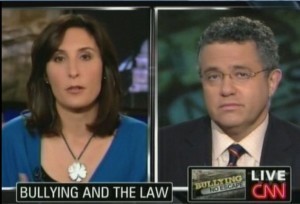 What Ms. Cushman and Mr. Prichard advocate as an effective way to stop bullying is saying to kids, "Be nice and kind to each other. And by the way, be nice to those gay kids too—even though they "choose" to live an abnormal and immoral life."
What Ms. Cushman and Mr. Prichard advocate as an effective way to stop bullying is saying to kids, "Be nice and kind to each other. And by the way, be nice to those gay kids too—even though they "choose" to live an abnormal and immoral life."
They both accuse bullying prevention programs of being political. They're strategy is entirely Machiavellian because they are accusing the opposition of exactly what they are in fact doing: politicizing the issue of bullying in schools. Listening to Mr. Prichard identify bullying prevention programs as a cover for endorsing gay marriage almost made me have a temper tantrum on air. After the show, my mother suggested I should tone it down. I thought the fact that I hadn't frothed at the mouth was an achievement.
Let's be clear: common sense dictates that if you don't name the specific behavior you want changed, you ineffectively communicate what you believe and what you want. When this philosophy is applied to schools, you can't provide accurate information, support and systems of accountability. But the worst is kids will think you're a useless, clueless, adult—and they'll be right.
Then adults really started to make me angry. During the interview with Ms. Cushman, she stated,
"We're hearing from parents that are having homosexuality lessons presented to their kindergartners in the name of anti-bullying."
Not only didn't she give any specific examples of these lessons, but by keeping this accusation vague and coupling these words and images together, she insinuated the unfounded, factually incorrect fear, that homosexuals are child molesters. She continued,
"If you start listing out too many categories [for bullying], you're going to leave some kids off the list. What about overweight? What about kids that wear glasses?"
As smart as I think Ms. Cushman is in getting her message across, this subsequent comment reflects just not getting what the dynamics of bullying are about.
The real motivation behind this argument is to silence people from speaking out against social injustice. From all the years I have worked in schools, one of the biggest challenges to getting kids the information and support they need is when teachers, parents, and administrators become scared that if they take a stand the will get into conflicts with other adults. (For a great example of this, check out this recent New York Times piece.)
So I want to share with you what I think is the most effective response—because this debate can't be won on facts. Now, when someone says bullying prevention programs are pro-homosexuality, I say, "That's being anti-child and if we don't address these issues in a real way, then there will be more 12 year olds with nooses around their neck. More parents standing over their children's caskets."
Obviously I'm a little heated.
The Reactionary Blogs
After my AC360 appearances, some attacked me for trying to restrict freedom of speech as if I was violating a sacred American right. Here's what I don't get: a person's freedom or "right" to degrade someone shouldn't trump another's right to be treated with dignity. Not only is that common decency and essential to the social contract we all have with each other, but in accordance with our founding fathers beliefs regarding a true democracy. They understood that an individual's pursuit of freedom inevitably conflicts with the dignity of the other—especially if the other has less power. This belief is what separates democracy from tyranny.
The Highs
Speaking to the Missouri School Counselor Association
Right before delivering my keynote at the Missouri School Counselors Association conference in November, I read another report of a child committing suicide because of gay bashing. I'm not usually a person who tears up, whose voice catches with emotion. Remember, I have developed a tough skin. But I couldn't do it that day. Many of the attendees are members of very conservative, religious communities like those of Ms. Cushman and Mr. Prichard, but they made the important connection that we have to identify a behavior to stop it, even if it makes the adults uncomfortable. The outpouring of support and unity was overwhelming.
NOH8's powerful PSA on Bullying Teen Suicide
It's inspiring, comforting, and educational. Cindy McCain is particularly powerful. If you have middle school or high school students please watch it and discuss with them.
Antony Turner
This is the young man who "outed" the Arkansas Board of Education member who wrote among other horrible things, that gay children should commit suicide. I was so struck by his kindness and courage to come forward. The world would be a profoundly better place if more people spoke out like Mr. Turner.
The Mormon Church
Obviously their involvement in California's proposition 8 was terrible. But, I have worked in the LDS community off and on for years so I was heartened to read LDS spokesman Michael Otterson speak out against bullying and disparaging gays.
"Their struggle is our struggle….Many questions in life, however, including some related to same-gender attractions, must await a future answer, even in the next life. Until then, the truth is, God loves all his children, and because he loves us, we can trust him and keep his commandments."
Admittedly these are baby steps but they're monumental. Most important, I would hope it at least gives some solace to gay people within the LDS community who have felt isolated, excluded and shamed from their own faith.
Young People
I have been amazed by the number of high school people who have thanked me online or after a presentation for speaking out. Their support is the most important thing I need to keep doing this work.
So that's it –a snapshot of what it's been like for me behind the scenes. I'm not going to lie. This is hard and exhausting work. We all have to take a stand here. We have to if we want to uphold a civil society and let our kids live in dignity.
November 12, 2010
Great Review of Owning Up Curriculum
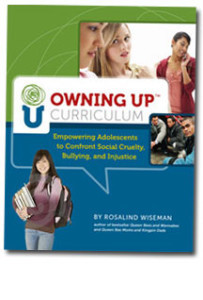 In a thoughtful and thorough review, Susan Ciardiello, PhD, LCSW provides valuable insight into Owning Up from a professional's point of view.
In a thoughtful and thorough review, Susan Ciardiello, PhD, LCSW provides valuable insight into Owning Up from a professional's point of view.
Introduction
The purpose of this book is to provide school social workers, psychologists, guidance counselors, teachers, and community mental health professionals with a curriculum to help adolescents "own up" or take responsibility for the decisions that they make with respect to their treatment of others. This includes taking a stand against social cruelty, bullying, and injustice. The book's core principle is Read More…
Glee Musings from the Trenches
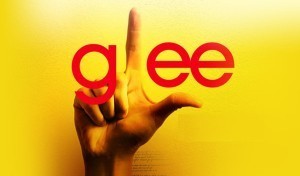 Over the past few days I have read both praises and critiques of Glee's "Never Been Kissed" episode. If you haven't seen it, it is a must watch. I often find myself sitting on the proverbial fence with Glee's controversial topics. On one hand, I applaud the show for highlighting serious issues that teens deal with (sex, teen pregnancy, bullying, homosexuality, religion, etc.) in a continuous, forward thinking fashion. On the other hand, I have been disappointed by the plot, the stereotyping, and sometimes, glaring hypocrisy. If I experience a negative Glee reaction, I can often ground myself by remembering the intended audience.
Over the past few days I have read both praises and critiques of Glee's "Never Been Kissed" episode. If you haven't seen it, it is a must watch. I often find myself sitting on the proverbial fence with Glee's controversial topics. On one hand, I applaud the show for highlighting serious issues that teens deal with (sex, teen pregnancy, bullying, homosexuality, religion, etc.) in a continuous, forward thinking fashion. On the other hand, I have been disappointed by the plot, the stereotyping, and sometimes, glaring hypocrisy. If I experience a negative Glee reaction, I can often ground myself by remembering the intended audience.
So, let's get real, I mean, as in realistic. I work in a high school and besides a few randoms rapping in the courtyard, I have never seen a group of impeccably synchronized teenagers bust into song with a teacher in the middle of the school day. I have never fished a student out of a dumpster, and if our PE teacher spoke to my principal in a Sue Sylvester manner, well, let's just say I hope she has tenure. Most of the Gleetiques are from a professional lens, whereas the show is trying to send valid messages to teenagers. If you have a teen, work with a teen, or spend a few hours with a teen, you are fully aware that they are all over the place. They are developing values, morals, and making many lesson learning mistakes along the way. If the show were a point-driven afterschool special, they wouldn't watch it. Nor would I.
I think Glee is a hilarious, thought provoking opportunity to discuss important topics with teens. In fact, just yesterday I had a fabulous bullying discussion with an 11th grader after she saw my "Glee" computer wallpaper. She immediately said "OMG, that is, like, my favorite show – did you see it last night?" And we talked about Glee for 2 minutes, and the issues for 20. There are many shows geared towards teens that are mind polluting, offensive, and simply not worth airtime. I don't believe Glee is one of them. I think I'll wear my "Gleek" shirt today, just because I can.
JVT
October 31, 2010
Anderson Cooper 360: How can a pro-suicide school board member be pro-child?
Rosalind was back on Anderson Cooper 360 to discuss the Arkansas school board member who posted a pro-suicide comment on Facebook. Watch the video and join the discussion by commenting on this post!
October 29, 2010
The Pink Elephant in the Room: Kids and Drugs.
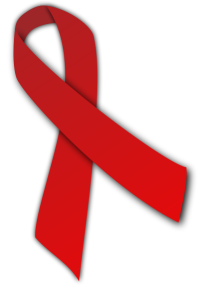 Today, schools across the country will wrap up Red Ribbon Week. The Red Ribbon Campaign was started in 1985 when drug traffickers in Mexico City murdered DEA agent Kiki Camarena. During this week, Red Ribbons are worn as a symbol of intolerance towards the use of drugs. Schools across America celebrated this week with awareness and prevention activities that encourage kids to be drug free. While kids generally get plenty of information about drug use at school, drug prevention begins at home.
Today, schools across the country will wrap up Red Ribbon Week. The Red Ribbon Campaign was started in 1985 when drug traffickers in Mexico City murdered DEA agent Kiki Camarena. During this week, Red Ribbons are worn as a symbol of intolerance towards the use of drugs. Schools across America celebrated this week with awareness and prevention activities that encourage kids to be drug free. While kids generally get plenty of information about drug use at school, drug prevention begins at home.
My friends who are elementary school counselors have shared stories of pill swapping and pot smoking on the playground, and a recent shocker involved a 3rd grade student found with an Oxycontin pill that his parent gave him "just in case his broken arm started to hurt " (you can't make that up.) I dealt with numerous drug related situations as a former middle school counselor, and now in the high school it occurs almost daily. From public school to private school, from elementary to college, and from the poor to the rich – drugs are everywhere. And many students can get a hold of an illegal substance quicker than their math homework.
Drug abuse, like any addiction, doesn't discriminate. If you suspect your child has a problem, you're probably right. And it is the responsibility of the parent or legal guardian to ensure they receive proper treatment. Yes, kids do experiment, but that does not mean it is OK. In fact, it's illegal. Admitting there might be a problem doesn't reflect poorly on your parenting skills. I have said it before; children are capable of doing everything parents raised them not to do.
Part of this problem boils down to brain science. The prefrontal cortex is responsible for making decisions and is not fully developed until adulthood. In addition, the neural connections that think through risky decisions are not formed. Meaning, "don't do drugs," "you are smarter that that," or "what were you thinking?" are ineffective and pointless. They weren't thinking. Another reason it is crucial to have frequent conversations about drugs. In addition, drug and/or alcohol use can severely impact the crucial brain development that occurs during the teen years.
The conclusion of Red Ribbon Week offers a perfect platform to have the "drug talk" with your child. I encourage parents to address these issues openly and honestly in a non-accusatory manner. Practice your poker face and begin these conversations now. Better to have these candid talks at the kitchen table than the principal's office, behind bars, or to wish you did while identifying them at the morgue.
Below are some excellent resources help with your dialogue:
The Partnership for a Drug Free America – http://www.drugfree.org/
The National Institute on Drug Abuse http://www.drugabuse.gov
The National Institute on Drug Abuse for Teens – http://teens.drugabuse.gov/
Adolescent Substance Abuse Knowledge Base - http://www.adolescent-substance-abuse.com/
Dr. Drew Pinsky – The RX Locker. http://rxlocker.com/
Best Wishes,
Julia V. Taylor
October 22, 2010
The Social Network: Missing the Connection on the Digital Revolution
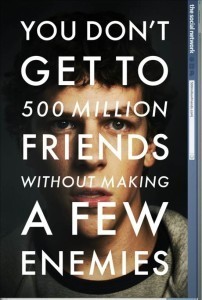 The Social Network is an extraordinarily well-made film in technical terms. Alas, this competency cannot hide the movie's glaring problem – the fact that it is not actually about any of the events it is describing. The internet-disliking Aaron Sorkin wrote a tragic friendship/courtroom drama without connecting it to the realities of the digital revolution. It is a very well done tragic friendship/courtroom drama, but the greatness, terror, and breadth of what Facebook created are only broached as sideshow devices in the evolution of the personal tragedy.
The Social Network is an extraordinarily well-made film in technical terms. Alas, this competency cannot hide the movie's glaring problem – the fact that it is not actually about any of the events it is describing. The internet-disliking Aaron Sorkin wrote a tragic friendship/courtroom drama without connecting it to the realities of the digital revolution. It is a very well done tragic friendship/courtroom drama, but the greatness, terror, and breadth of what Facebook created are only broached as sideshow devices in the evolution of the personal tragedy.
Saying that Mark Zuckerberg or Sean Parker were driven to make Facebook or Napster out of a deep need to be accepted ignores the tremendous forces they were engaging. Zuckerberg and Parker were intelligent people who managed to subvert identity, information, ownership, and even capitalism itself. In addition to their personal flaws they also had some serious things on their minds. Zuckerberg had real intellectual reasons for unleashing what he created, concrete beliefs about how privacy needed to be redefined, how the Internet should be used, and how people are supposed to connect in a free society. You or I may disagree with them, but these thoughts were driving the development of Facebook. He was not acting blindly out of insecure dork-rage. Mark Zuckerberg knew what he was doing, which may actually make him worse, or better, or more sinister.
The Social Network is best and closest to brilliance when it portrays Mr. Zuckerberg as an anti-hero crusader, dropping the tragedy act and displaying him as a force on the wind, using his rough edge to tear down structures that might just deserve it (i.e. Larry Summers' Harvard). It also contains the all-too-often dropped thread of showing the crass misogyny, sexism, and backwards gender roles endemic at the far end of the bell-curve. That even in a world where women out-earn and out-test men, the movers and shakers at the very top are still predominately male. None of the entrepreneurs, or geniuses, or programmers, or high-achieving anti-heroes portrayed in the film are women. The closest we get is a bright young lawyer and a Victoria's Secret model who needs shots if business is going discussed while she is sitting at the table. This speaks volumes.
We as a society do not raise our daughters to be rebels. We do not instill in them the need to challenge the rules and demolish barriers based on the glory of their own ideas, even in the face of their own self-immolation. We are not teaching them to tear down the walls.
You may think that Mark Zuckerberg built a time-wasting plague on human interaction that is ruining your children or you might believe that he is a genius prophet of modernity. You might consider both simultaneously. It is too bad the film does not contain this larger discussion within its narrative. But either way, he changed the world, and if no real lessons about what Facebook has done to us can be taken from the The Social Network, at least we can take away some truths about human achievement. The two most successful people who ever attended Harvard were both dropouts. This is not an accident. If only we let our children, especially our daughters, be that bold. And if only we let them be that flawed.



